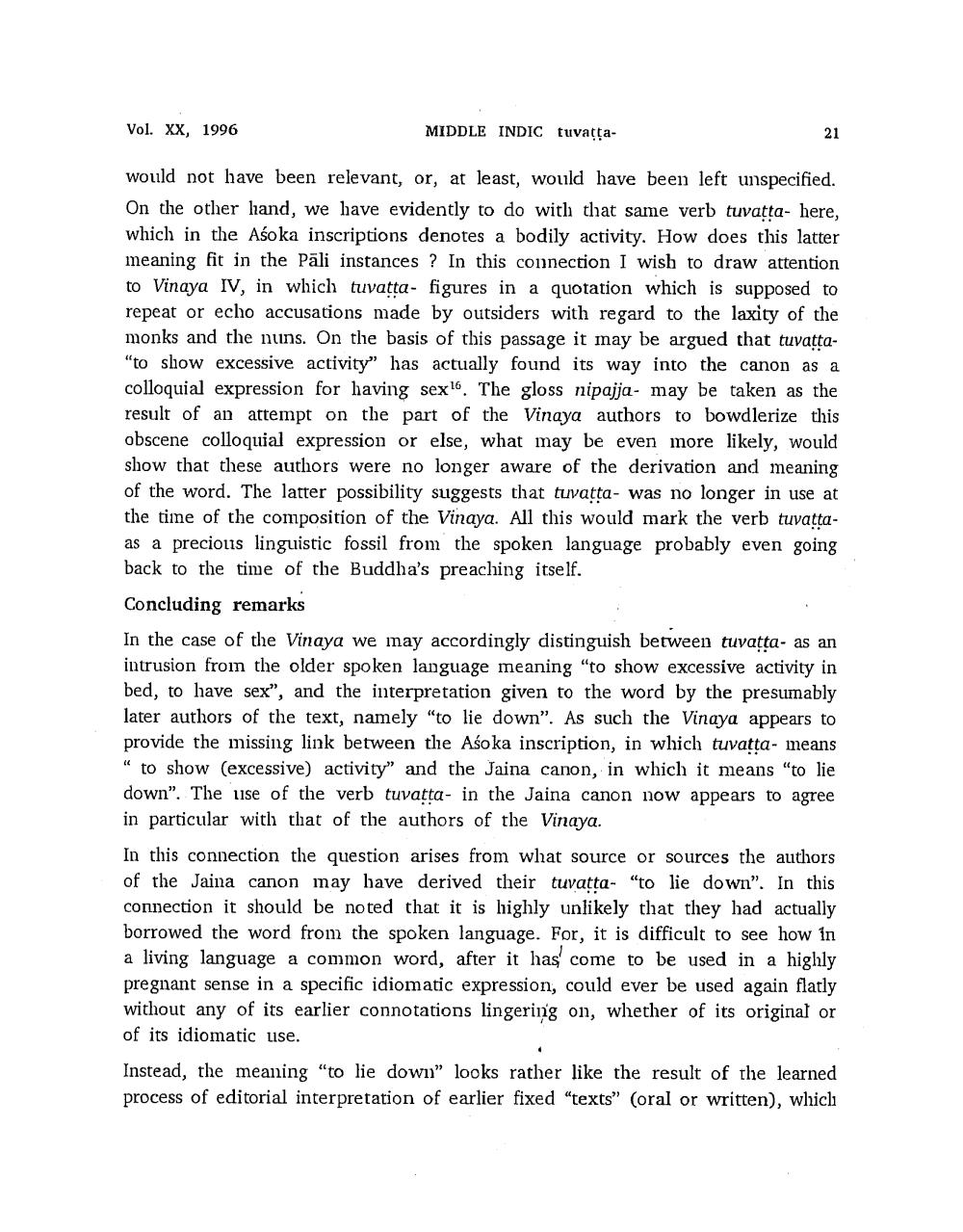________________
Vol. XX, 1996
MIDDLE INDIC tuvatta
would not have been relevant, or, at least, would have been left unspecified. On the other hand, we have evidently to do with that same verb tuvatta- here, which in the Aśoka inscriptions denotes a bodily activity. How does this latter meaning fit in the Pāli instances ? In this connection I wish to draw attention to Vinaya IV, in which tuvatta- figures in a quotation which is supposed to repeat or echo accusations made by outsiders with regard to the laxity of the monks and the nuns. On the basis of this passage it may be argued that tuvatta"to show excessive activity” has actually found its way into the canon as a colloquial expression for having sex 16. The gloss nipajja- may be taken as the result of an attempt on the part of the Vinaya authors to bowdlerize this obscene colloquial expression or else, what may be even more likely, would show that these authors were no longer aware of the derivation and meaning of the word. The latter possibility suggests that tuvatta- was no longer in use at the time of the composition of the Vinaya. All this would mark the verb tuvattaas a precious linguistic fossil from the spoken language probably even going back to the time of the Buddha's preaching itself. Concluding remarks In the case of the Vinaya we may accordingly distinguish between tuvatta- as an intrusion from the older spoken language meaning "to show excessive activity in bed, to have sex”, and the interpretation given to the word by the presumably later authors of the text, namely "to lie down". As such the Vinaya appears to provide the missing link between the Aśoka inscription, in which tuvatta- means " to show (excessive) activity” and the Jaina canon, in which it means "to lie down”. The use of the verb tuvatta- in the Jaina canon now appears to agree in particular with that of the authors of the Vinaya. In this connection the question arises from what source or sources the authors of the Jaina canon may have derived their tuvatta- "to lie down". In this connection it should be noted that it is highly unlikely that they had actually borrowed the word from the spoken language. For, it is difficult to see how in a living language a common word, after it has come to be used in a highly pregnant sense in a specific idiomatic expression, could ever be used again flatly without any of its earlier connotations lingering on, whether of its original or of its idiomatic lise. Instead, the meaning "to lie downl” looks rather like the result of the learned process of editorial interpretation of earlier fixed "texts” (oral or written), whichi




